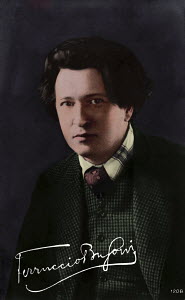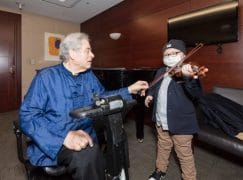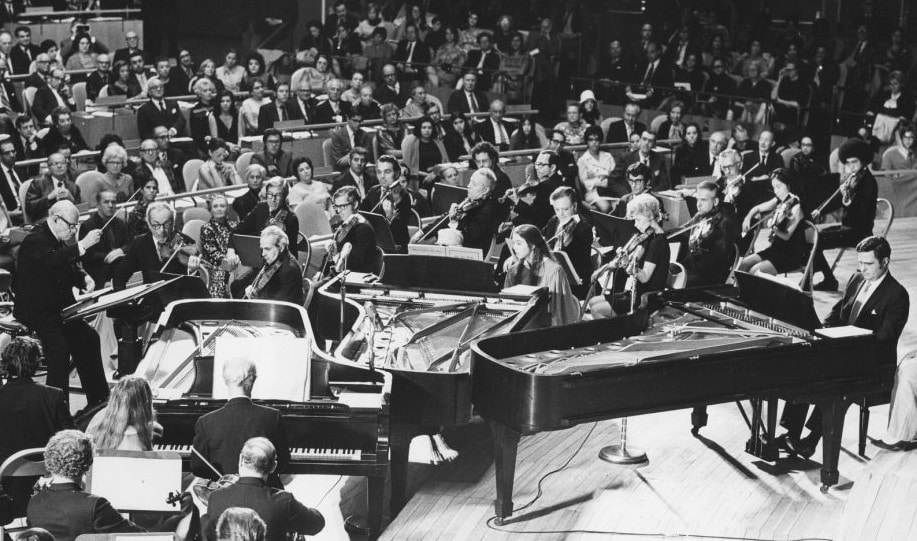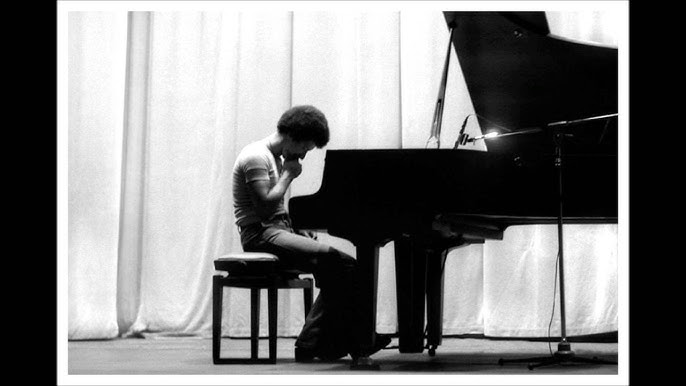Busoni has never sounded better
mainFrom the Lebrecht Album of the Week:
Busoni is a great baffler. One of the most interesting musical minds of his time — the only pianist that Mahler considered an intellectual equal — his music so often falls short of his written ideas that one is tempted to dismiss both as inconsequential. Yet there is always something in Busoni that draws you back, just in case you missed the point first time round….
Read on here.
And here.






Eh, I prefer Marc-Andre Hamelin’s version to this one.
I’m not surprose, M-AH is wonderful, while Gerstein makes fairly decent records of stuff he can’t play properly in concert! I shouldn’t pre-judge, but i’m not tripping over to listen to this.
The new Gerstein Busoni recording was made live.
Fair enough, i shouldn’t pre-judge, but these days we have so-called “live” recordings which often bear little resemblance to what was heard in the hall! Particularly shocking fraudulent examples have been supplied by P-L Aimard, incapable of playing the Dvorak concerto, (what a groteske mis-casting!),on the night, but the “live” recording, (same date), is perfect….and suspiciously audience-silent at critical moments. Barenboim is another specialist at massive patch-ups after the concert for “live” recordings in recent years.
Agreed.
The difference of course is that Silatoslav Richter bothered to go to Michelangeli’s concerts.
Thank you for bringing this to our attention.
For me Kiril Gerstein is a pianist I follow with great interest. He always brings new insights, both to staple repertory works and others off the beaten path. If I had to bet which of today’s young or middle aged famous pianists will be elder statesmen in a few decades, Gerstein would easily be one of them.
While looking for online recordings of the Busoni concerto, I came across a real gem: a Busoni duett with Gerstein and Andras Schiff.
https://www.youtube.com/watch?v=9-ypiuWs3zA
May God forgive me: I really have tried to like the Busoni Piano Concerto, but I failed – it’s such a bloviated, vacuous bore!
Strangely, i’ve always loved it, probably cos my first hearing, as a teenager, was in concert with John Ogdon, just before he recorded it, fifth(?) row in the Fairfield Hall, Croydon(!)… i thunk i would need a seat belt, so thrilling was the ride thru a mysterious musical world….Romantic, yes, but much else as well, so fascinating, yet unfathomable. Busoni will probably always remain marginal; he doesn’t “fit” anywhere easily. Luckily there will always be adventurous pianists and conductors…Donohoe, Hamelin and Ohlsson have given splendid performances…i’ve been lucky to hear them.
The thing to remember is that first and foremost Busoni was a virtuoso concert pianist in fact a child progidy who was pushed hard by his father to perform. Some of his keyboard transcriptions are in the same league as Liszt. He somewhat lacks in original creative and melodic originality compared to even Liszt. He was a bold experimentor with harmony and was an important “bridge” like Reger between late Nineteenth Century romanticism and C20 modern music. On a personal level he was divided between northern Europe and the southern Mediterranean Europe and his reworking of Goethe’s Faust reflects that dichotomy and was his major lifetime’s work left in an incomplete state at the time of his death.
I would suggest the best intro to this composer is the Leutner recording of Dr Faust with Fischer-Dieskau in white hot form leading an exceptional (cast, sound etc) pioneering recording. The keyboard virtuoso is best heard in his Bach Chaconne Transcription which was one of Arturo Michelangeli’s favourite concert show pieces. Any of that Italian maestro’s recordings of this work is a literally jaw dropping intro to perfect technique and musicality. There is the RAI DVD of ABM playing the Busoni which may even be available on YouTube.
I wish we could go back and edit our comments for typos! In my case
prodigy for “progidy”
Sviatoslav for “Silatoslav” Richter.
Continuing on theme of authenticity and recordings is that there is no substitute for the live concert experience – but even this is affected by which part of the hall you are sitting in and the hall itself! As per the Barbican. It is fair to say that major pianists are engaged in venues far too large for an ideal listening or acoustic ecperience. Just as a Liederabend in the Albert Hall is preposterous I think a piano recital in the Festival Hall, where the acoustics in both places are not particularly great in any case, is really a compromise created by poor artistic management and old fashioned greed.
Recotds have always been an ideal means of eliminating this problem ad you can more or less set up the microphones to simulate the ideal listening “sweet spot”. Unfortunately this is an entirely subjective value so there is a huge variation of piano sound across different recordings and labels seem to have a native “sound”. For example, Philips (especially Arrau) are fairly close up and rich. DG (any and all but one thinks of Kempff) favoured a more ambiant crystalline sound though this changed in the late 1970s (ref compare Michelangeli’s Debussy Images with his later Preludes records) while Telarc has an extremely base heavy sound. Etc. As for editing and covering up – it’s really part of the recotding process. Within reason (and if it means a slight tidying up of the finished result) it is acceptable. Even “live” recordings are post edited sometimes being a pastiche of two separate performances.
Then you have the issue of ambiance. The “dryest” piano recordings I have come across are those by Bolet of Chopin and Liszt on Everest recorded in a brand new studio sounding like an anechoic chamber – which it probably was – plus the Everest custom of removing the piano lid completely!
Then there is the choice of instrument. The Bosendorfer sounds different from a Steinway, the Imperial Grand with its extra octave and a half, even more so. The Yamaha is a bright piano favoured by virtuosos and jazz pianists. Brahms composed many of his keyboard works on an upright. Does that affect how we should listen to and record his music?
The internet abounds with lists of favourite or “best” pianists – including important historical figures in the development of the pianoforte such as Beethoven or Liszt by reputation only (one comment is that after hearing Liszt play the “Moonlight Sonata” they couldn’t bear to hear it played by another pianist!) as they predate even the piano rolls which tangibly put us into contact with famous musicians of the past.
However, one’s favourite is somebody else’s pet hate, and what one considers “best” is disregarded by others.
However, musical intelligence, artistry and technical mastery are vital ingredients in a great pianist and few have all of them in abundance. Celibidache said that Arturo Michelangeli was the only pianist in his experience who could relate the end of a work exactly to the beginning which to my mind is a good guide.